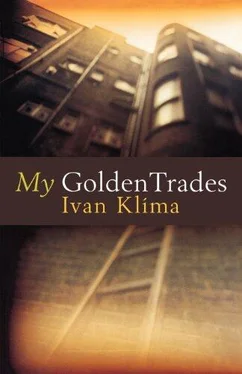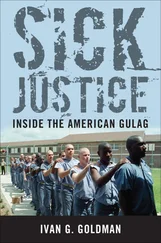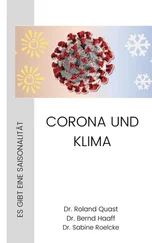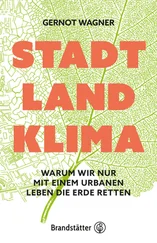Ivan Klima - My Golden Trades
Здесь есть возможность читать онлайн «Ivan Klima - My Golden Trades» весь текст электронной книги совершенно бесплатно (целиком полную версию без сокращений). В некоторых случаях можно слушать аудио, скачать через торрент в формате fb2 и присутствует краткое содержание. Год выпуска: 1998, Издательство: Granta UK, Жанр: Современная проза, на английском языке. Описание произведения, (предисловие) а так же отзывы посетителей доступны на портале библиотеки ЛибКат.
- Название:My Golden Trades
- Автор:
- Издательство:Granta UK
- Жанр:
- Год:1998
- ISBN:нет данных
- Рейтинг книги:4 / 5. Голосов: 1
-
Избранное:Добавить в избранное
- Отзывы:
-
Ваша оценка:
- 80
- 1
- 2
- 3
- 4
- 5
My Golden Trades: краткое содержание, описание и аннотация
Предлагаем к чтению аннотацию, описание, краткое содержание или предисловие (зависит от того, что написал сам автор книги «My Golden Trades»). Если вы не нашли необходимую информацию о книге — напишите в комментариях, мы постараемся отыскать её.
My Golden Trades — читать онлайн бесплатно полную книгу (весь текст) целиком
Ниже представлен текст книги, разбитый по страницам. Система сохранения места последней прочитанной страницы, позволяет с удобством читать онлайн бесплатно книгу «My Golden Trades», без необходимости каждый раз заново искать на чём Вы остановились. Поставьте закладку, и сможете в любой момент перейти на страницу, на которой закончили чтение.
Интервал:
Закладка:
'What are you trying to tell me? That we have no prizes here?'
'Three hundred and fifty thousand dollars!' said Klíma gleefully.
'You could really do something with that,' remarked Vandas, his good-natured, bearded face radiating contentment. He was expecting his wife home the following week; she was doing well.
'Certainly, if money is what it takes to get some people thinking,' Rybová shot back. She turned to me. 'Are you going to Komořan this afternoon?'
'If you need me to.'
'I'll leave it here,' she said, pointing to the table.
Klíma called me over, and I knew he wanted to torment me with WordPerfect again.
This time I remembered to change diskettes, and when the computer told me it was ready, I began to write:
Ladies and gentlemen,
Permit me to take advantage of this extraordinary opportunity to address the representatives of all nations and express some of my concerns at least to you—
In the days when I was still working for a literary magazine, an experienced colleague told me always to cut the first paragraph of any article, regardless of who wrote it. It is always expendable, he said.
I erased my paragraph, and then wrote:
I know that many wise words have been spoken in this forum, and I fear there is not a lot I can add. Yet I know as well as you do that we are rushing headlong towards a catastrophe that we refuse to see, that we are hoping to postpone, though we know too that each day we choose postponement over change, we make the catastrophe all the more inevitable. This assembly is like a boat attempting to rescue the drowning while it itself is sinking. I know you must be
quite deaf to the cries for help, to the voices of the sick, the hungry, the innocently imprisoned, the voices of the tortured and the powerless. I know that when you look at our planet, you see below you a sea of flammable liquid waiting for a spark to ignite it. This is our tragedy: we are on the lookout for sparks, while we keep on filling that flammable sea with rubbish, tanker ships full of crude oil, cubic kilometers of gas, the last living forests. We cannot prevent a spark from flying. We must realize at last that it is not just nations that are in danger, it is not just freedom and rights that are threatened, but life itself, as long as we do not stop our insane, headlong race after the mirage of prosperity, the lazy consumption of. .
I felt excited and agitated, as I always am when I feel the desire to communicate too much at once and, at the same time, realize how fruitless my efforts are. You can't change things with words. With what, then? And besides, the telephone had been ringing for about half a minute and no one was answering it. I got up to do so, though I knew it wouldn't be for me. Miss Kosinová got there first. 'Yes, he is,' she said. 'No — oh, that can't be true!. . But just yesterday. .' She laid the receiver down beside the telephone. 'Peter,' she called. 'Peter — the phone.'
The parcel of print-outs was ready for me beside the telephone.
Vandas emerged from his cubicle.
'It's the hospital,' Miss Kosinová said, as though she were wondering whether or not to give him the receiver. 'But it's not good news.' She looked at me and I saw tears running down her cheeks.
Vandas held the receiver to his ear and listened to what
they were telling him. 'Yes,' he said. 'I'm still here.' Then he hung up. He turned to us and said: 'And they told us it wasn't malignant! It wasn't malignant — that's what they said. Everything is malignant.' He sat down and put his head in his hands. Miss Kosinová stood over him and stroked his hair. Others came up to comfort him, while I stood back; I felt out of place, as though I were a parasite on someone else's pain. I was an outsider here. I went back into Mr Klima's cubicle and destroyed another of my pointless, incomplete and undelivered speeches. Then I took the parcel of print-outs, stuffed them into my bag and slipped out of the hall without anyone noticing.
At the subway station I bought three irises.
The door to Natasha's office opened before I had a chance to knock.
'You've brought something again?' she asked.
'Something for you, too.'
She took the flowers. 'Thank you. They're beautiful. They look like orchids. But you needn't have done that. That's not what I meant last time.' She took the vase from the cupboard, dusted it off and filled it with water. 'I'll make some coffee. Or would you rather have some wine? Yesterday was payday,' she explained. 'Otherwise I couldn't afford it. In any case, I'll be short by the end of the week.'
'Do they pay you badly?'
'When I pay the rent, I have a hundred left from the advance. And when I get the rest at the end of the month, I try to send something to my boy — he's in the army.'
'You have a son that old?'
'I was eighteen when I got married.'
'And your second husband?'
She waved her hand dismissively.
'I'm sorry. I didn't mean to pry.'
'Why not? He's in prison. Over in Ostrava.'
I didn't ask further, but she continued. 'He had an enterprising spirit — nothing more. In a normal world, he'd have opened a shop, and that would be it. He understood videos and tape recorders, even though he was a chemist. Just like my first husband — and like me.'
'You studied chemistry?'
'I taught it. Ten years. But then when my husband was arrested — well, they investigated me too. They had nothing on me; I wasn't involved. They were his deals, but they told me I couldn't teach any more.'
'Didn't you fight back?'
'What's the difference? They do whatever they want with you anyway. I was lucky to get this job. The people here are decent — but there's not much money, nor much work either, as you can see. Especially not now. And what about you? Are you going to be coming around for much longer?'
'That doesn't depend on me.'
'And if it did?'
'Another two weeks.'
'See what I mean? And what then?'
I shrugged my shoulders. 'Something will turn up.'
'Well, I don't want to pry. Will you have another drink?'
I said I'd had enough, but she poured herself another glass. 'If you hear of anything half decent, would you let me know?'
'But I have nothing to do with chemistry — not a thing.'
'Neither do I — any more, and I wouldn't want to, either.'
'What would you like?'
She stretched, and then attempted a smile. 'Right now I'd like to go swimming. How about it?'
'I'm not too fond of swimming.'
'Just my luck,' she said. 'My first husband didn't like swimming either. He was born under a fire sign. That was why he started doing what he did, and it was probably why he burnt himself out so soon, too. By the end, he was almost totally paralysed.'
'How old was he?'
'Thirty-one. We went to university together. He was a real athletic type — basketball, tennis, cross-country.' She filled her glass again. 'Am I annoying you with all this talk? But you don't like swimming. And it's hot in here. Aren't you hot?'
I was hot, but I didn't like the idea of swimming in the river, especially one as filthy as the Vltava. So I invited her to a pub near the bus stop, where we could sit in a small garden in the shade.
'Do you think I could leave now?' She was already taking a white handbag out of the cupboard. 'I'll leave the flowers here till tomorrow,' she decided. 'I spend more time here than at home anyway.' She locked the office.
Outside, they were laying another length of pipe with the crane. We had to wait for them to finish, and she put her arm in mine. 'My head's spinning a little,' she said. 'It's the sun. And I haven't had lunch.'
'Why didn't you have lunch?'
'I can't afford it.'
We found an empty table in the garden in the shade of a chestnut tree. The waiter offered us beer and a menu.
Читать дальшеИнтервал:
Закладка:
Похожие книги на «My Golden Trades»
Представляем Вашему вниманию похожие книги на «My Golden Trades» списком для выбора. Мы отобрали схожую по названию и смыслу литературу в надежде предоставить читателям больше вариантов отыскать новые, интересные, ещё непрочитанные произведения.
Обсуждение, отзывы о книге «My Golden Trades» и просто собственные мнения читателей. Оставьте ваши комментарии, напишите, что Вы думаете о произведении, его смысле или главных героях. Укажите что конкретно понравилось, а что нет, и почему Вы так считаете.












